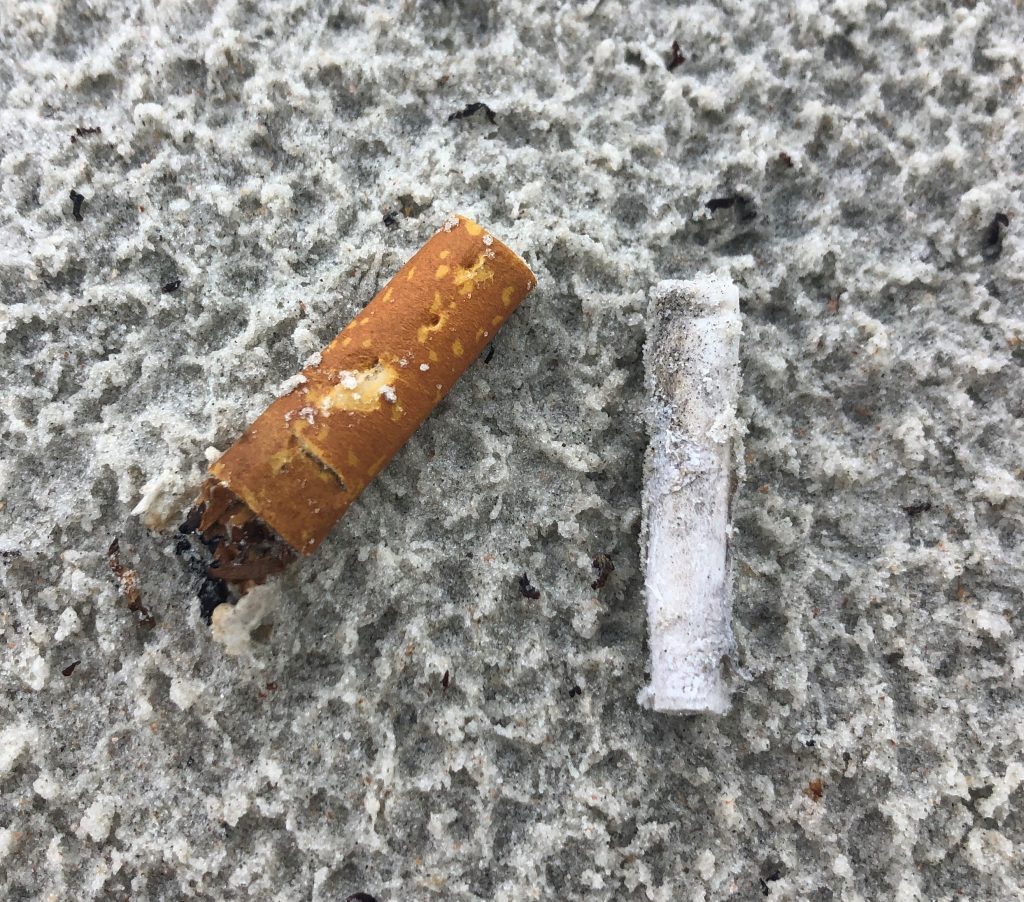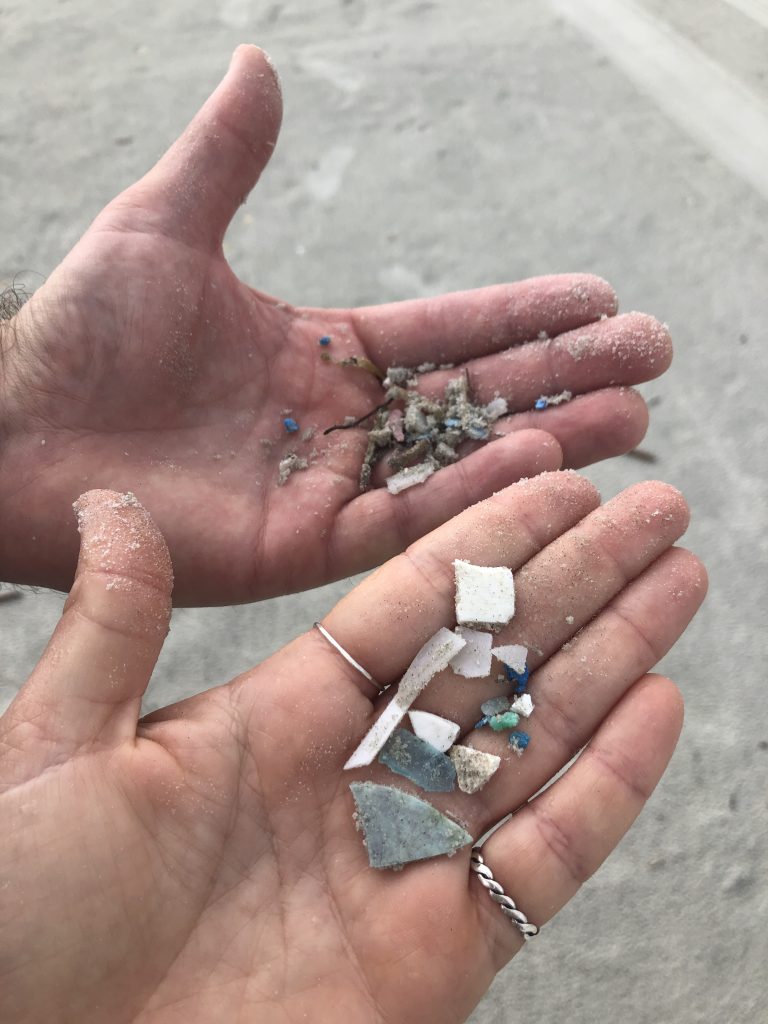Earth Day 2024 is coming up on April 22, and this year’s theme is “Planet vs Plastics.”
Plastic Facts – Did you know?
- The synthetic plastic was Bakelite made in 1906 by Leo Baekland in Belgium.
- Plastics are made from naptha, a product of fossil fuels.
- The numbers on the bottom of some plastics indicate the type of polymer they are made from. You need to check with your local municipality to know which polymers (numbers) they accept for recycling – just because it has a number doesn’t mean they will take it!
-

Cigarettes contain a plastic filter and do not biodegrade. The most common type of trash collected during beach cleanups worldwide are cigarette butts (ICC, 2023). Cigarettes contain a plastic filter that does not biodegrade, so it is important that the end up in the trash can and not out in nature!
- Every day, Americans use more than 100 million disposable forks, knives, and spoons (National Geographic, 2019).
- The average life span of a plastic bag is 12 minutes (New York State, 2017).
- Over half of clothing items are made of plastic-based materials. We own 60% more clothes than we did 15 years ago, but only wear each item half as much as we used to (McKinsey, 2016).
- Plastics have been found in a wide range of marine animals, including sea turtles, sea birds, fish, and whales.
- A blue whale may ingest 10 million pieces of microplastics daily by consuming krill that ate the plastic. This is up to 92 pounds of microplastics in a single day! (Kahane-Rapport et al., 2022).
We need to reduce our production and consumption of plastic for the health of our earth, marine life, and humans!
What can we do to reduce plastic in our ecosystems?

- Always take trash with you and dispose of it properly (in a trash bin, preferably with a lid so it cannot blow out!)
- Pick up trash that you see on the beaches, or anywhere outdoors.
- Remember to bring your reuseable water bottle, cutlery, and shopping bags with you so that you don’t have a need for single-use plastics.
- Support local companies and restaurants that use sustainable products rather than single-use plastics.
- Choose clothing made of natural materials such as cotton, buy and donate second-hand clothing to keep it out of the landfill, and avoid “fast fashion” – clothing that you plan to only wear a few times.
- Learn your local recycling regulations and make sure you are not putting items that cannot be recycled in the bin (if you live in Volusia or Flagler Counties, you can find this information in my previous blog, Talk Trash and Take Action).
This Earth Day, choose to take on a few new personal practices to reduce your plastic use. You can also find many groups organizing beach cleanups, or organize your own cleanup with your friends, family, or community wherever you live.
 0
0
